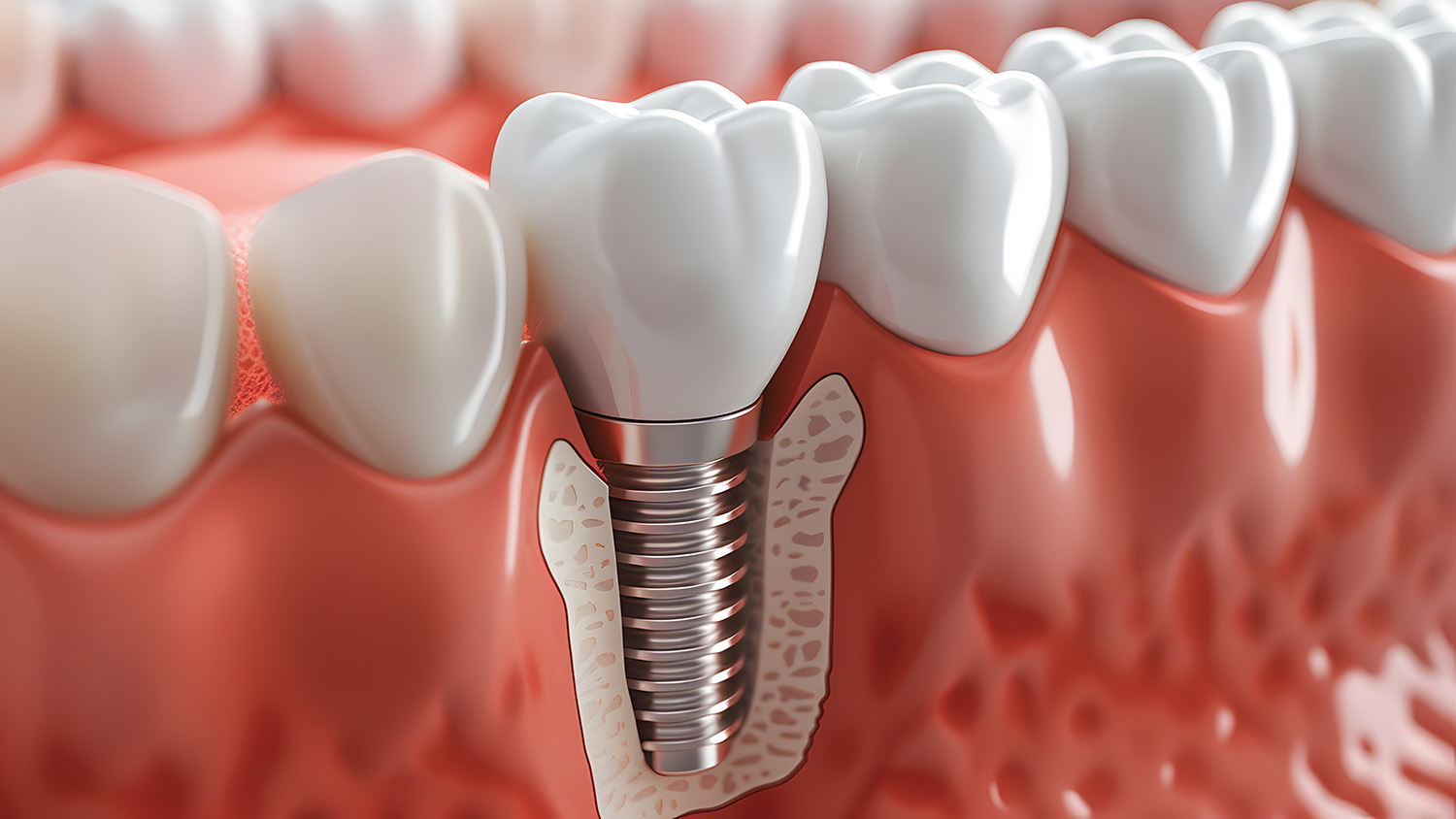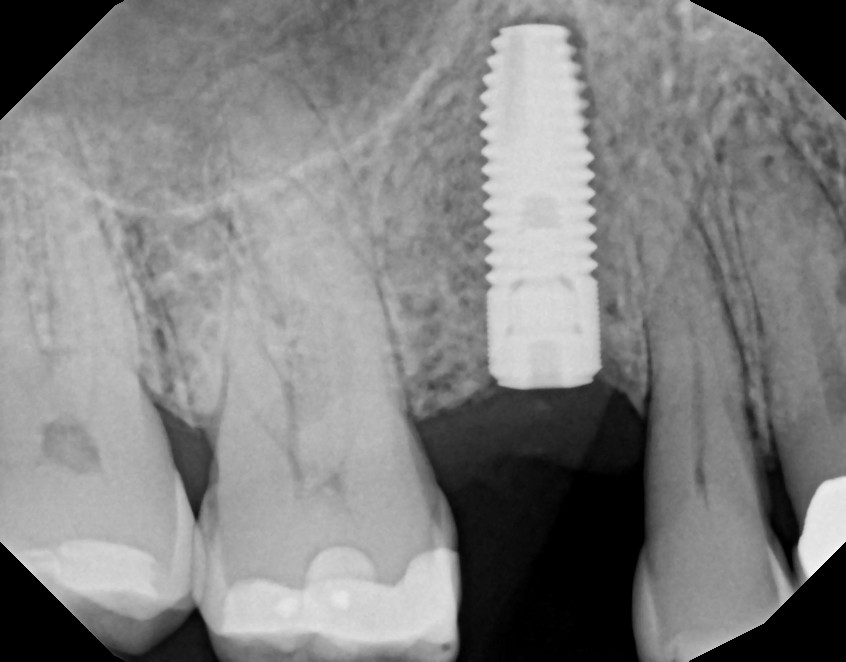Missing teeth or extractions can cause you to hide your smile. It can be very uncomfortable for anyone who loves to smile to stop doing it suddenly due to a lost tooth. However, flipper teeth are an option to fill these gaps in a natural-looking, less expensive way than partial dentures, implants or similar options.

What are Flipper Teeth?
Flipper teeth are designed to fit your palate, or the roof of your mouth, and are a removable retainer. The retainer may also sit on the lower jaw if you have missing bottom teeth that need to be replaced.
If you’ve lost teeth due to one of the following, flipper teeth may be an option for you:
- Severe tooth decay
- Gum disease
- Tooth extraction
Flipper teeth are made from acrylic and serve the purpose of filling in tooth gaps. One or more acrylic teeth can be affixed to the retainer to restore your smile if more than one tooth is missing, too.
Who Needs Flipper Teeth?
You may or may not be a good candidate for flipper teeth. Typically, you’ll be a good fit for this tooth restoration option if you’re missing one or more teeth and are waiting for a more permanent solution, such as:
- Dental implants
- Dentures
- Fixed bridges
Most people who are missing their front teeth will find that flipper teeth offer a temporary, short-term solution, which is the ideal situation. However, most people will not use flipper teeth as a permanent solution.
With that said, there may be some rare occurrences where a person may not be a good fit for dental implants and fixed bridges and flipper teeth are the only valid option.
Fllipper teeth cost between $300 - $500+, but the price will depend on multiple factors, such as:
- Material cost
- Number of teeth needing replacement
If you need tooth replacement and are considering flipper teeth, you can call our office and we’ll be happy to discuss the cost with you.
5 Things Everyone Should Know About Flipper Teeth
Flipper teeth can help bridge the gap between missing teeth. If you’re considering this dental appliance, you should know a few important things.
1. Flipper Teeth Offer Numerous Benefits
Flipper teeth are an attractive option as a prosthetic tooth, and they offer many benefits. A few of the main benefits that our patients appreciate with this type of prosthetic include:
- Affordability: Bridges, dentures and implants are all fantastic options for tooth replacement, but they can also be expensive. Even when compared to a partial denture, flipper teeth are a more affordable option and put them in the budget of more Canadians.
- Aesthetics: Smiling with confidence again is a good feeling and one that this prosthetic can offer. You’ll find that these acrylic teeth are designed to look very close to your natural teeth and can even match them in appearance.
- Quick: Perhaps the greatest benefit of flipper teeth is that we can make them quickly. You won’t need to wait weeks for the denture to be made, allowing you to smile with confidence in one or two visits. If you have a big event coming up, flipper teeth can replace your missing tooth quickly.
- Easy: Pop the retainer into your mouth and be prepared to smile. These prosthetics are as easy to put on and take off as dentures.
- Stabilization: Missing teeth can lead to teeth shifting and even jawbone loss over time. Replacing the gaps with flipper teeth stabilizes your other teeth so that there’s less risk of shifting.
When it comes to care and maintenance, flipper teeth are some of the easiest alternatives to care for compared to implants and bridges.
2. Caring for Flipper Teeth is Easy
Caring for your prosthetic teeth will allow them to remain in tip-top condition for years to come. Although flipper teeth are meant to be temporary solutions to missing teeth, you still need to care for them properly.
- Clean the flipper teeth daily using a toothbrush and warm water. You want to remove any of the stuck on debris and food that can make wear uncomfortable and unhygienic. Avoid using toothpaste on the teeth, as they can be damaged.
- Ask for adjustments from our team if you feel pain or discomfort when wearing the teeth. If you notice that the teeth are loosening, call us to fix the issue as soon as possible.
- Take the retainer out at night to avoid potential damage in your sleep. Patients who grind their teeth can easily damage the prosthetic when they sleep if they grind their teeth.
- Use a dental cleaning soak or even water to place the flipper teeth in when you’re not wearing them.
You’ll also want to avoid drinking any substances that can stain the prosthetic. Coffee, wine and even beets can stain the prosthetic. Also, you want to avoid overly hot liquids touching the acrylic.
After tooth or teeth extraction care includes keeping the partial away from the extraction site during healing.
3. Less Expensive Than Dentures, Bridges and Implants
Dentures, implants and bridges are all great options for replacing missing teeth. However, these solutions may be out of your budget. Implants can easily cost thousands of dollars per tooth.
Flipper teeth offer a more affordable alternative, allowing you to get the restoration you need as quickly as possible.
On average, flipper teeth cost between $300 and $500, but prices can reach $1,000 in some cases.
Partial dentures and bridges, on the other hand, can cost up to $1,500.
If cost is a concern, flipper teeth offer a viable solution for restoring your smile.

4. Adds Comfort When Eating
Eating can be difficult or even painful when you have missing teeth. Flippers help bridge the gap between your teeth, making it much easier and more comfortable to eat.
Start with smaller, softer foods when you first start using your flippers. Once you get used to wearing and eating with them, you can begin eating more substantial food.
As a general rule of thumb, it’s best to avoid eating hard, sticky and extra-chewy foods with your flipper teeth.
5. You Must Remove Your Flippers Before Bed
To keep your teeth healthy and your flipper teeth in good condition, it’s essential to remove them before bed.
Removing them will give your gums a break while helping prevent gum disease, bone deterioration and gum recession.
When removing your flippers, make sure that you clean and brush them just like you would with your natural teeth.
Use a special denture brush to clean your flipper, and be gentle when cleaning.
When you take your flipper teeth out at night:
- Store them in a case with water to prevent them from drying out.
- Soak them in a denture cleaner 2-3 times a week overnight.
Avoid boiling your flippers or using bleach and harsh chemicals to clean them.
When Flipper Teeth May Not Be the Best Choice
Although there are many advantages to using flipper teeth, there are some drawbacks that you also need to consider.
Low Durability
Because flipper teeth are made with less durable and inexpensive materials, they typically don’t last as long as other dental appliances.
Flippers are typically made with gum-colored acrylic resin and have a metal framework. They’re traditionally designed for temporary use, so they’re not meant to last forever.
Flipper teeth are vulnerable to cracks and may need to be repaired or replaced often.
Uncomfortable
Some people find that flipper teeth feel uncomfortable in their mouths, especially at first. Eating and talking may only feel natural once you get accustomed to your flipper teeth.
Flipper teeth may feel uncomfortable, but they should never cause pain. If you’re experiencing pain, it’s important to schedule an appointment to investigate the problem.
Risk of Decay and Disease
Like other types of dentures, flipper teeth can increase the risk of tooth decay and gum disease if they aren’t cleaned and maintained properly.
It’s important to care for your flipper dentures the same way you would care for your natural teeth. They should be cleaned daily and kept in water when not in use to keep them from drying out.
Gum Recession
Because flipper teeth cover your gums, it’s more difficult for saliva to reach that area. Your saliva helps clean your gums and prevents recession.
With less saliva reaching the area, there’s a greater risk for gum recession with flipper teeth.
Gum recession can have a significant and negative impact on your oral health. Taking proper care of your flipper teeth and giving your gums a rest at night can help prevent recession.
May Not Always Fit Properly
Flipper teeth are designed to grip onto nearby teeth. Over time, however, their grip may loosen, especially with regular use.
Eventually, your tooth may need an adjustment to ensure it fits properly. Excessive bone loss after a tooth extraction, sometimes signified by prolonged bleeding, can also result in a more loose fitting partial denture.
Allergies
Some people find that they are allergic to the materials used to make flipper teeth. Although not common, allergies are something to consider with flipper teeth.
Conclusion

Flipper teeth are one way to fill the gap between missing teeth. These removable retainers are designed to look natural and can help prevent teeth from shifting. However, it’s important to carefully weigh this dental appliance's pros and cons to ensure it’s the right choice for you.







